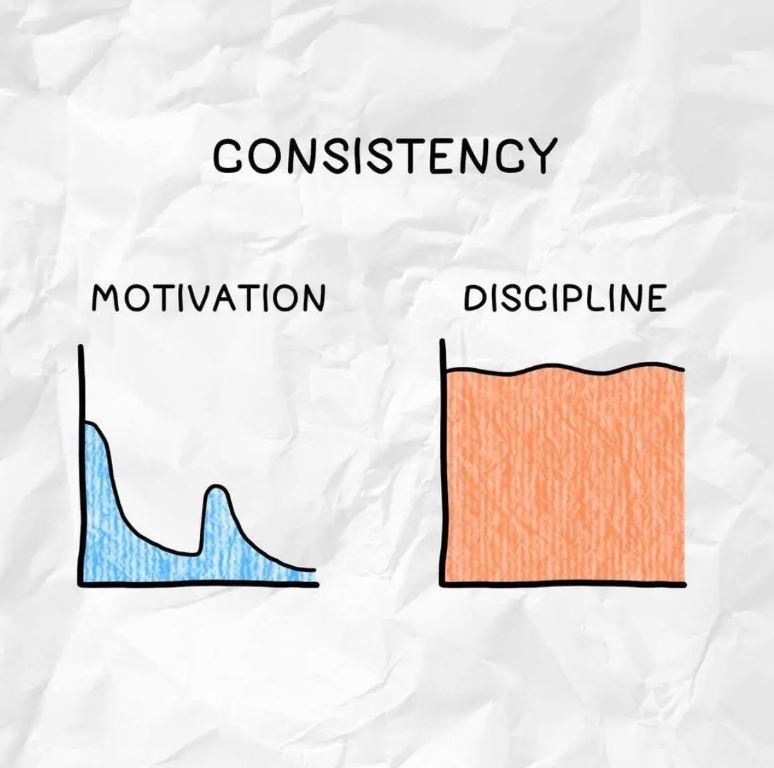by: Jaclyn Rink, MSCP, LLP
Thomas Edison said the following, “Genius is 1% inspiration and 99% perspiration.”
Usually, I hear people express one of the two following sentiments:
1. "I
just don't have any motivation today?”
2. "I
was SO motivated and productive today!"
They both seem to be statements of extremes, and no one ever
really mentions having a "middle" amount of motivation. We can define
motivation as “the general willingness or desire of someone wanting to do
something.” It is an internal state that drives us to act in a goal-oriented
way: crossing items off our to-do list, getting our daily workout in, planning
our summer vacation.
When we feel
motivated, the dopamine neurotransmitter in our brain is at its most optimal
(think a sunny, warm day filled with fun things that you’re excited to do vs. a
dark, dreary mundane workday). With how quickly and easily our brain chemistry
changes, motivation becomes a fleeting concept, and it never seems to have a
constant presence. How often do you ACTUALLY feel motivated to do something?
Especially something you don't want to do? It's rare, and if it does occur, it
usually doesn't last for long. Are there ways to increase your motivation? Yes.
Is this a blog about how to do that? Nope.
Instead, I want to talk with you about the concept of
discipline. Discipline is the practice of training yourself to engage in
behaviors that align with your values or needs. It does not rely on any
increase of neurotransmitters, environmental supports, or good weather. Discipline
occurs in the prefrontal cortex of our brains, the area responsible for problem
solving, revealing that at its core, discipline is a decision making and
problem-solving process. We must make the decision to engage in such behaviors
no differently than we would make the decisions to stop and get gas when our
fuel light comes on. It may not be something that we want to do, but it’s
something that we have to do (and generally experience more distress if we don’t!)
When you think about the activities that you engage in on
a weekly basis, I guarantee you are already using the concept of discipline. Didn’t
feel like making dinner for the family tonight, but ended getting something on
the table? Discipline. Felt too tired for the gym but made it there?
Discipline. Really wanted to stay up and
binge watch the last episode of that new show but went to bed instead?
Discipline. We are relying on the concept of discipline more than we realize, and
although it may not always win, merely considering it/recognizing it, can be
helpful in itself. Nike had it right with their slogan, “Just do it!”
If we rely on motivation to be the only driving force for
us to accomplish our goals, we aren’t going to achieve those goals as quickly
or often as we would if we added discipline to the equation. Generally, getting
started is the hardest part, and once we start acting in alignment with our
goals a ripple effect is created: We feel good about what we have accomplished
through discipline, which in turn generates motivation.
6 Questions to ask yourself to encourage
discipline:
1. Will
my future self thank me for this?
2. Does
this raise or lower my mental/physical energy?
3. Does
this align with the life I want to create?
4. How could
this potentially benefit me in the short term and long term?
5. What
would the best version of myself do?
6. How
will I feel (tomorrow, end of the week, next week etc.) if I choose NOT to?
6 Steps to take that increase discipline:
1. Develop
a routine: When you
establish a routine, our body and minds adapt to the necessary amount of energy
needed to complete them. The things we need to do just become a “normal part”
of our day and feel less like an extra inconvenience.
2. Clarify
your goals: Writing down daily goals can be helpful in
turning your attention towards discipline. Be sure that your goals are clear, realistic
and attainable.
3. Reward
the effort: Got through your entire to-do list when you barely thought
you could get out of bed? That deserves a pat on the back or a special little
something!
4. Be
kind to yourself: What you say to yourself matters. Being
hard on yourself if you falter only further decreasing your willingness to engage
in the behavior next time (e.g., I felt so guilty last time I didn’t follow
through, I don’t even want to chance it this time around!)
5. Problem
Solve: Since discipline is partly a problem-solving process, brainstorm
what obstacles might get in the way, and if there’s a way to minimize or work
around them.
6. Give
what you (actually) have: If you only have 50% to give today, and
you gave that 50%, you actually gave 100%. Overdoing it erodes willpower and
sets you up for failure. Discipline does not mean 100% every day, but it does mean
giving your best each day (and your best is different every single day!)


